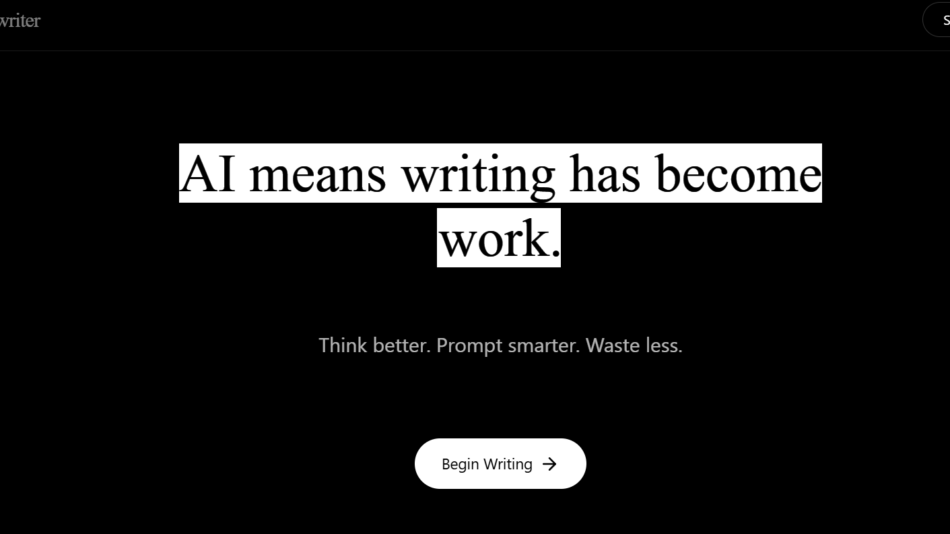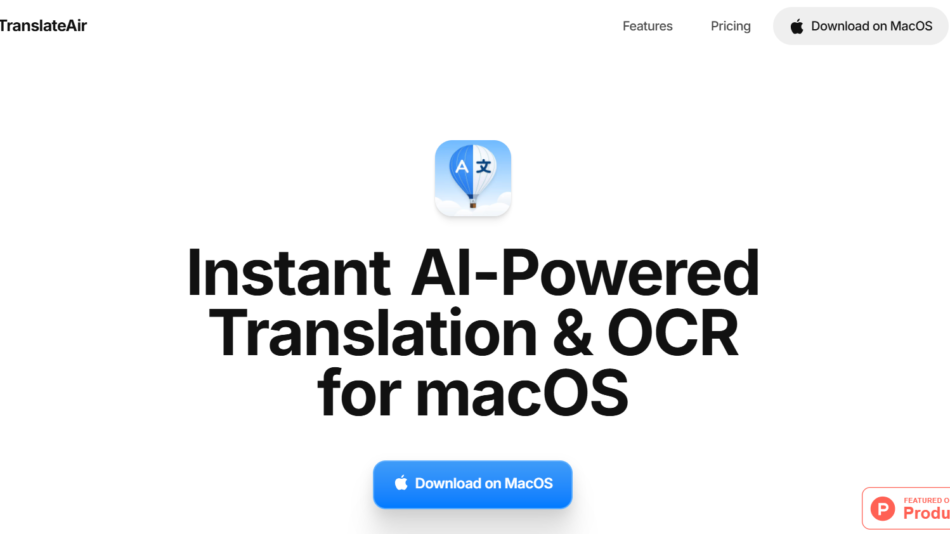Aider is an open-source, AI-powered coding assistant designed to work directly with your local Git repository, enabling seamless collaboration between human developers and AI models. Unlike browser-based code tools that require uploading your code to external servers, Aider operates within your terminal and integrates tightly with your version control system, giving developers the power to write, edit, and refactor code through natural language prompts.
Built with a focus on developer autonomy, transparency, and Git best practices, Aider supports developers by automating routine coding tasks, assisting with complex refactors, and providing code suggestions—while keeping full control in the hands of the developer. It uses OpenAI’s GPT models under the hood, with optional support for other large language models.
Whether you’re prototyping a new feature, fixing bugs, or improving legacy code, Aider simplifies the process without compromising your development workflow.
Features
Aider offers a rich set of features designed to enhance productivity and streamline collaborative coding between developers and AI:
Terminal-Based AI Assistant
Aider runs entirely in your terminal, providing a command-line interface where you interact with an AI assistant using natural language.Works with Your Git Repo
It integrates directly with your Git-tracked files, reading and writing code while maintaining version control history.Natural Language Coding
Ask the AI to implement features, fix bugs, refactor code, or explain code—all using simple English prompts.Git Commit Generation
Automatically generates descriptive Git commits for each code change, preserving a clear history.Multi-File Context
Aider reads from and writes to multiple files at once, allowing for more complex code interactions across modules.Code Explanation and Review
Ask Aider to explain functions, classes, or logic in plain English, or review code for quality and optimization.Custom Model Support
Supports various GPT models (including GPT-4 Turbo) and allows customization of API keys and model settings.Secure and Local
No need to upload your code to a web server—Aider keeps your project local, ideal for privacy-conscious developers.
How It Works
Aider is designed to be easy to set up and integrate with your existing development environment:
Install Aider
Initialize in Your Git Repo
Run Aider in the root of your Git project. It detects and works with Git-tracked files only.Start Chatting
Type natural language commands such as:
“Add logging to all functions inapp.py” or
“Refactorutils.pyto improve readability.”Review and Apply Changes
Aider shows you the proposed code edits. You can review them before accepting or modifying.Automatic Git Commits
Once approved, Aider commits the changes with an AI-generated commit message, maintaining clean version control.
Aider supports an iterative workflow, allowing you to refine prompts, revert changes, and continuously interact with your codebase in a conversational manner.
Use Cases
Aider is ideal for developers working on local projects, side hustles, or production applications who want AI assistance without leaving the terminal:
Solo Developers
Get help writing new features, debugging issues, or speeding up refactoring tasks without switching tools.Open Source Contributors
Navigate unfamiliar codebases and make contributions more efficiently with AI explanations and code suggestions.Backend and API Development
Quickly scaffold endpoints, data models, or helper functions using prompt-based commands.Codebase Modernization
Update older code to modern conventions or newer frameworks without manual rewrites.Documentation and Comments
Auto-generate docstrings, inline comments, or usage explanations to improve maintainability.
Pricing
Aider is free and open-source under the MIT License. There is no charge to use the tool itself.
However, because Aider connects with AI models via APIs (primarily OpenAI’s GPT models), you will need:
An OpenAI API Key, billed according to OpenAI’s usage-based pricing
Optionally, an Anthropic or other LLM API key if using different model providers
This approach ensures maximum flexibility: users only pay for the compute they use and retain full control over their AI provider and spending.
For up-to-date model pricing, visit OpenAI Pricing.
Strengths
Aider offers unique advantages over browser-based or editor plugins:
Local Development Workflow
Works entirely within your local terminal and file system, preserving privacy and security.Git-Native Integration
Git-aware edits and commits reduce the risk of accidental overwrites and improve code tracking.Open Source and Extensible
Developers can inspect, customize, or contribute to Aider’s codebase.Minimal Setup
Quick to install, lightweight, and doesn’t require switching IDEs or tools.High-Level and Low-Level Tasks
Handles both simple changes (e.g., renaming variables) and complex logic modifications across files.
Drawbacks
While Aider is powerful, there are a few limitations to consider:
No GUI or IDE Plugin
It’s a command-line tool, which may not appeal to developers who prefer graphical interfaces.Limited Frontend/Visual Support
Not designed for UI prototyping or visual HTML/CSS edits where WYSIWYG might help.Relies on External AI APIs
Requires an OpenAI or similar account; usage fees may apply based on model consumption.Steeper Learning Curve for Non-Terminal Users
Beginners unfamiliar with Git or the command line may face a learning curve.
Comparison with Other Tools
Aider differentiates itself from tools like GitHub Copilot and ChatGPT in key ways:
GitHub Copilot offers inline suggestions in editors like VSCode, but lacks deep Git integration and multi-file context.
ChatGPT can assist with code, but it doesn’t directly manipulate local files or integrate with your Git history.
Cursor and Continue.dev offer LLM-based editing in GUI editors, but often involve sending code snippets to the cloud, which Aider avoids.
For developers who prefer working in the terminal and want full control over AI changes to their codebase, Aider provides a unique and powerful alternative.
Customer Reviews and Testimonials
While Aider is a newer open-source project, early adopters and developers on GitHub and Reddit have praised its flexibility and developer-centric approach:
“Aider feels like pair programming with a super-smart assistant that actually knows your code.”
– Open Source Contributor
“The Git integration is brilliant. I love how it generates commits after each prompt—it keeps my workflow clean.”
– Backend Engineer
“Way more private than other tools. I use Aider for my side projects where I don’t want to upload code to the cloud.”
– Indie Developer
The project is actively maintained and supported on GitHub, where users regularly contribute feedback, issues, and new ideas.
Conclusion
Aider is a standout AI-powered coding assistant for developers who want the power of large language models without leaving their terminal or giving up control of their local codebase. With Git-native integration, secure local development, and natural language coding capabilities, Aider is ideal for developers who value speed, automation, and flexibility—without compromising privacy.
Whether you’re building a new app, maintaining a legacy project, or contributing to open source, Aider offers a practical and developer-friendly way to boost your productivity with AI.
For those looking for a no-nonsense, privacy-first AI assistant that speaks code fluently, Aider is a tool well worth adding to your development toolkit.















